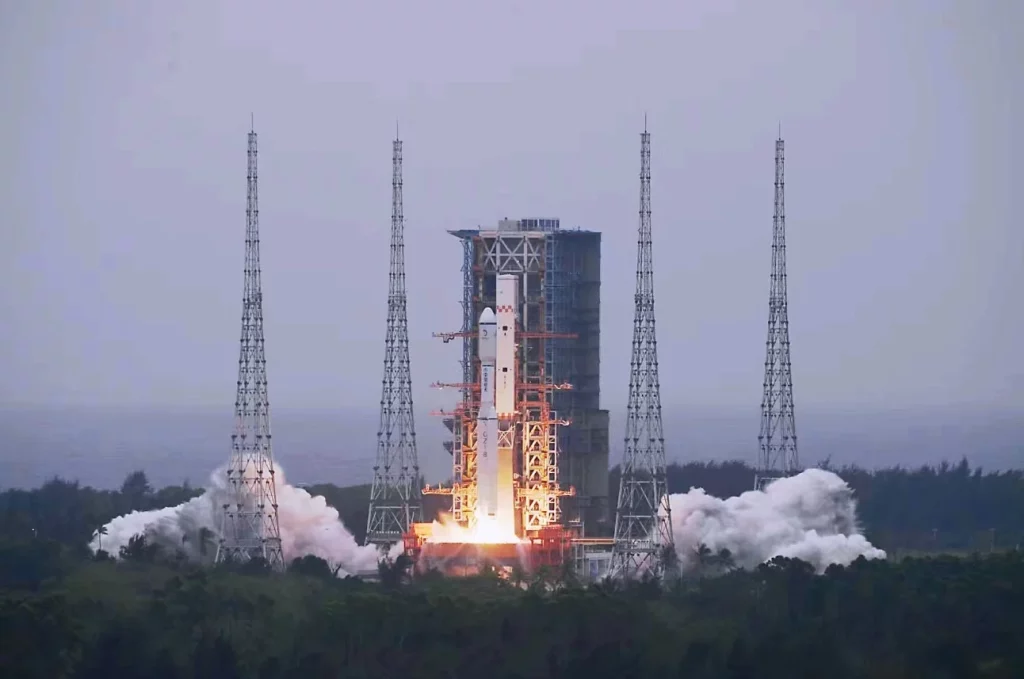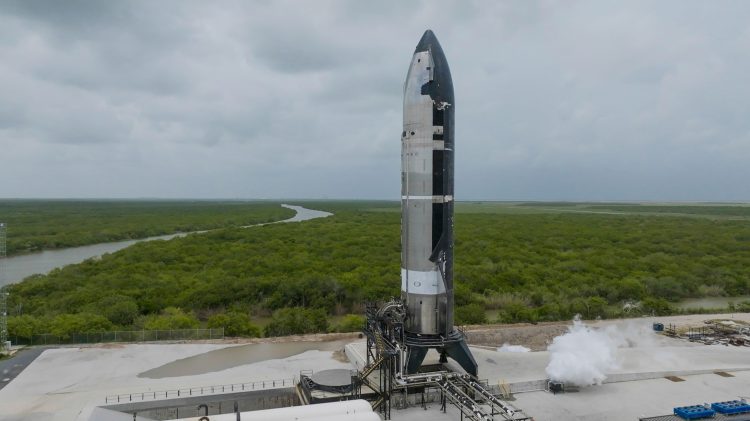The excitement surrounding lunar resource extraction has reached a fever pitch as nations and private companies race to tap into the Moon’s untapped wealth. With the Chinese Chang’e 7 mission recently conducting groundbreaking experiments to extract helium-3, a rare isotope with potential for future clean energy, lunar mining is shifting from sci-fi to plausible reality. Yet amid the technological breakthroughs and commercial ambitions lie alarming scientific warnings about the fragile lunar environment. Scientists caution that the Moon’s unique microgravity conditions could cause dust pollution unlike anything on Earth, creating potentially irreversible damage to the lunar surface ecosystem and infrastructure. Meanwhile, commercial actors such as Blue Origin and NASA are already negotiating contracts embedded with strict environmental provisions to mitigate risks. This convergence of high-stakes science, politics, and business raises a critical question: could moon mining inadvertently trigger the first off-planet environmental disaster?
The Current State of Lunar Mining Technology
China’s Chang’e 7 mission represents the cutting edge of lunar exploration and resource utilization. Launched with the objective of performing helium-3 extraction tests, Chang’e 7 landed in the Moon’s South Pole region in 2024, a site chosen for its scientific and resource potential. Helium-3 is a non-radioactive isotope that could revolutionize energy production on Earth by enabling nuclear fusion with minimal radioactive waste. The extraction process involves heating regolith—the Moon’s surface layer—to release helium-3 trapped in tiny particles. While initial experiments have demonstrated feasibility, the procedure also disturbs the regolith, producing fine lunar dust.
This lunar dust is no ordinary dust; its properties make it highly reactive and persistent. Due to the Moon’s microgravity environment, the dust does not settle quickly but rather remains suspended for extended periods, posing risks to both equipment and future habitats. Chang’e 7’s test phases revealed that disturbed dust clouds lingered much longer than anticipated, causing abrasion and contamination on sensitive instruments.
Simultaneously, other countries and private firms continue to develop complementary technologies for mining water ice, rare earth metals, and other materials vital for sustaining off-Earth colonies. NASA’s Artemis program, collaborating with commercial partners, has initiated precursor missions to study regolith disturbance and develop mitigation techniques. However, these efforts remain in early stages, underscoring the nascent state of lunar mining technology and the enormous challenge of balancing extraction with environmental stewardship.
Scientific Warnings: The Perils of Microgravity Dust Pollution
The Moon’s environment differs starkly from Earth’s in ways that complicate pollution control. With only about one-sixth of Earth’s gravity and a near vacuum atmosphere, lunar dust behaves unlike any terrestrial dust. When disturbed, dust particles become electrostatically charged and levitate, creating a persistent, diffuse cloud capable of drifting long distances across the surface.
Scientists warn that this dust cloud can cause irreversible damage. Unlike Earth, where wind and rain cleanse dust particles, the Moon has no atmosphere or weather systems to disperse or settle dust. This could lead to a buildup of fine particles coating scientific instruments, solar panels, and habitats, degrading performance and accelerating wear. The abrasive nature of lunar dust—sharp-edged and chemically reactive—poses health hazards for astronauts if inhaled, exacerbating concerns for long-duration human presence.
Moreover, researchers highlight the potential for cascading effects. Large-scale mining could repeatedly disturb wide areas of regolith, creating extensive dust pollution zones. This contamination might degrade scientific sites, obscure geological features, and disrupt nascent lunar ecosystems. Given that the Moon’s surface has remained largely pristine for billions of years, these changes may represent humanity’s first irreversible environmental footprint beyond Earth.
Some scientists draw parallels to Earth’s own history of industrial pollution, urging caution. They emphasize that the Moon’s environment lacks natural remediation processes, making preventive measures critical. The microgravity dust challenge is unique—requiring novel solutions for containment, air filtration, and surface stabilization before commercial operations scale up.
Commercial Stakes and Environmental Clauses in Lunar Contracts
As lunar mining inches closer to commercialization, economic interests are colliding with environmental imperatives. Blue Origin, led by Jeff Bezos, is among the most vocal private companies with ambitions to develop lunar resource extraction capabilities. Its Blue Moon lander prototype is designed to carry payloads and mining equipment to the lunar surface, facilitating future operations.
Recognizing the environmental risks, NASA’s contracts with private firms now include explicit environmental protection clauses. These require contractors to implement dust mitigation technologies, monitor regolith disturbances, and submit environmental impact assessments prior to each mission. NASA’s Artemis Accords, international agreements guiding lunar cooperation, also emphasize responsible behavior, sustainable resource utilization, and prevention of harmful contamination.
Yet enforcing these provisions is complex. The Moon is beyond any single nation’s jurisdiction, falling under the Outer Space Treaty’s mandate for peaceful use and common benefit. However, current international space law lacks detailed regulatory mechanisms to manage lunar mining environmental impacts. This regulatory vacuum presents challenges for balancing commercial ambitions with the protection of a fragile extraterrestrial environment.
Industry insiders acknowledge that these environmental clauses could slow development and increase costs. But many agree that they are essential for long-term viability. Firms like Blue Origin are investing in dust suppression systems, such as electrostatic barriers and regolith stabilizers, to minimize surface disturbance. NASA is also funding research into robotic methods to contain dust and limit human exposure.

The Broader Implications of Off-Planet Environmental Damage
The risk of triggering the first off-planet environmental disaster raises philosophical and practical questions about humanity’s expansion into space. The Moon, often viewed as a barren rock, holds cultural and scientific value, and preserving its integrity resonates beyond scientific circles.
Environmental degradation on the Moon would set a precedent for future mining on Mars, asteroids, and beyond. It forces us to rethink space exploration not just as a technical feat but as a stewardship responsibility. Could lunar mining practices shape the future of space governance? Will humanity apply lessons from Earth’s ecological crises to avoid repeating mistakes off-planet?
Some experts advocate for an international lunar environmental agency, equipped to monitor mining impacts and enforce protection standards. Others call for a moratorium on large-scale extraction until thorough environmental studies are completed.
Meanwhile, public opinion appears divided. Enthusiasm for space exploration coexists with growing awareness of sustainability. Space advocates highlight the Moon’s potential to supply materials that reduce Earth’s mining burdens and support clean energy development. Environmentalists stress caution, advocating for preservation alongside progress.
Conclusion: Navigating Between Promise and Peril
Moon mining is undeniably one of the most ambitious ventures humanity has ever contemplated. The technology demonstrated by China’s Chang’e 7 and the emerging commercial efforts highlight a rapidly approaching era where lunar resource extraction could become routine. However, the Moon’s fragile microgravity environment and the unpredictable behavior of dust pollution present real, scientifically grounded threats.
If mismanaged, lunar mining could lead to the first environmental disaster beyond Earth’s borders, tarnishing the pristine lunar surface and jeopardizing scientific research and human safety. Fortunately, the inclusion of environmental clauses in NASA and commercial contracts, combined with early research into mitigation technologies, suggests growing awareness and precaution.
Ultimately, balancing commercial interests, scientific exploration, and environmental protection will be critical to ensuring that humanity’s steps into space do not leave a destructive footprint. The Moon could become a symbol of sustainable off-world development—or a cautionary tale of hubris. How we navigate this new frontier may determine the legacy we leave for future generations and the broader cosmos.











































Discussion about this post